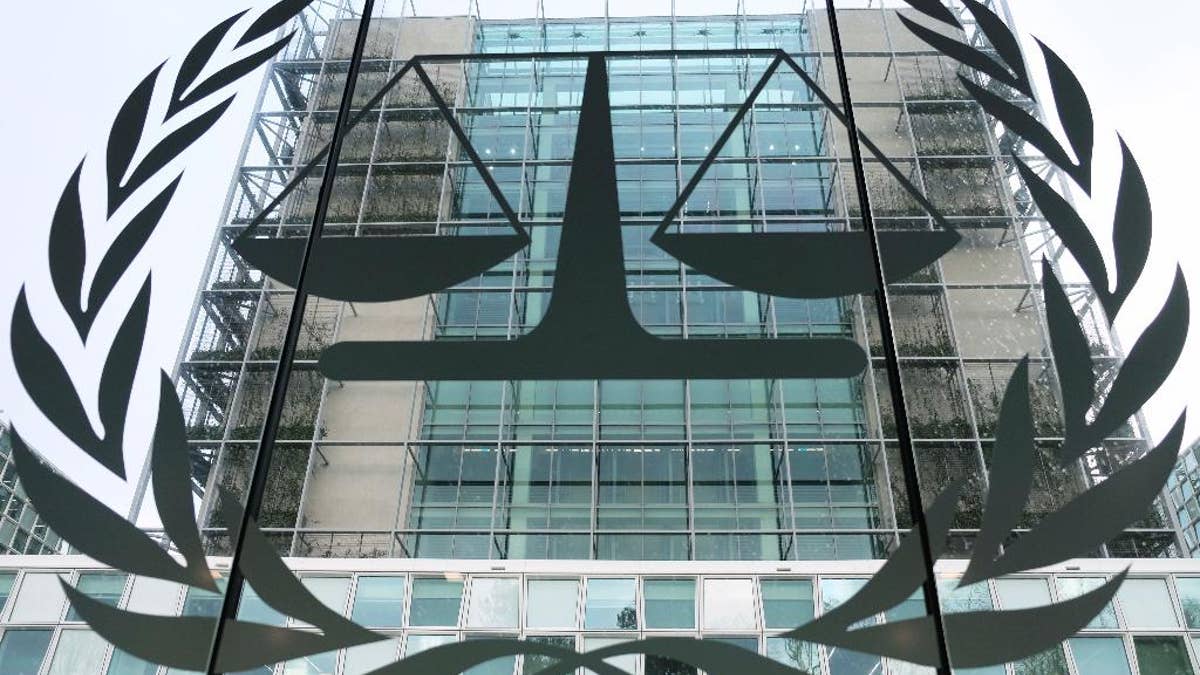
FILE- This Jan. 12, 2016, file photo shows the exterior view of the headquarters of the International Criminal Court in The Hague, Netherlands. U.S. armed forces and the CIA may have committed war crimes by torturing detainees in Afghanistan, the International Criminal Court's chief prosecutor said in a report Monday, Nov. 14, 2016, raising the possibility that American citizens could be indicted even though Washington has not joined the global court. (AP Photo/Mike Corder, File) (The Associated Press)
THE HAGUE, Netherlands – The prosecutor of the International Criminal Court has announced that she will make a decision imminently on whether to seek authorization from judges to open a formal investigation into crimes allegedly committed in Afghanistan by United States forces and the CIA, Afghan government forces and the Taliban.
The ICC is one of a number of international courts set up since the end of World War II to prosecute war crimes and other atrocities in conflicts around the world.
Here is a rundown of some of the various courts and tribunals meting out international and local justice:
___
INTERNATIONAL CRIMINAL COURT
Established in 2002, the Hague-based ICC is the world's first permanent criminal court with a global reach. It was set up to prosecute suspects considered the most responsible for the worst crimes, including war crimes, crimes against humanity and genocide.
It currently has 124 member states, although three African nations recently announced plans to quit. The U.S., Russia, China and Syria are among countries that haven't signed up to the court.
So far, all of the court's trials have focused on crimes in Africa, but the court is conducting preliminary probes around the world, including the examination of allegations of atrocities in Afghanistan and the use of harsh interrogation techniques there by U.S. forces and the CIA that a prosecution report says may amount to war crimes.
____
NUREMBERG and TOKYO TRIBUNALS
The two tribunals set up by the victorious allies after World War II laid the foundation for modern international tribunals.
They prosecuted political and military leaders from Germany's Nazi regime and Japan's wartime establishment.
Unlike more recent tribunals, which seek to prosecute crimes committed by all sides in conflicts, the Nuremburg and Tokyo courts only indicted suspects from the losing sides.
____
INTERNATIONAL CRIMINAL TRIBUNAL FOR THE FORMER YUGOSLAVIA
Based in a former insurance company office in The Hague, the U.N. court was set up to prosecute the worst atrocities of the wars that erupted as Yugoslavia crumbled in the 1990s.
The court indicted 161 suspects and is currently trying the last of them, former Bosnian Serb military commander Gen. Ratko Mladic, on genocide and other charges.
It also has convicted former Bosnian Serb leader Radovan Karadzic of genocide. The man alleged to have fomented conflicts throughout the former Yugoslavia, former Serbian leader Slobodan Milosevic, was put on trial but died before his case finished.
____
INTERNATIONAL CRIMINAL TRIBUNAL FOR RWANDA
The U.N. court established to deal with the 1994 genocide in Rwanda indicted 93 suspects. Eight of them remain fugitives.
The tribunal, which had its headquarters in Arusha, Tanzania, convicted dozens of people for their roles in the slaughter of some 800,000 Tutsis and moderate Hutus. A former prime minister, Jean Kambanda, pleaded guilty and was given a life sentence.
The tribunal formally closed its doors last year, passing on any remaining legal cases to a mechanism set up in The Hague to deal with legacy issues from both the Rwanda and Yugoslavia tribunals.
____
EXTRAORDINARY CHAMBERS IN THE COURTS OF CAMBODIA
A U.N.-backed court set up in 2006 to bring to justice leaders of the notorious Khmer Rouge.
The court applies both local and international law in its cases, which deal with the Khmer Rouge's brutal 1975-79 reign that led to the deaths of 1.7 million Cambodians though execution, starvation and inadequate medical care.
The tribunal has convicted suspects including Khieu Samphan, the regime's head of state, and Nuon Chea, the right-hand man of the group's late leader, Pol Pot, and sentenced them to life imprisonment.
____
SPECIAL COURT FOR SIERRA LEONE
Set up in 2002 to prosecute atrocities in Sierra Leone's brutal 1991-2002 civil war, it finished its work in 2013.
The U.N.-backed court was funded by voluntary contributions and was the first international tribunal to be based in the country where the crimes it prosecuted were committed.
The court put 10 suspects on trial and convicted nine of them, including former Liberian President Charles Taylor, who was sentenced to 50 years for his role in the conflict.
____
SPECIAL TRIBUNAL FOR LEBANON
Another court based in the Netherlands, the Special Tribunal for Lebanon opened in 2009 to prosecute those responsible for a truck bombing in Beirut on Feb. 14, 2005, that killed former Lebanese prime minister Rafik Hariri and 21 others.
The court has a mix of international and Lebanese judges and works using Lebanese law. The court is currently trying in absentia four suspected members of the Hezbollah militia on suspicion of carrying out the assassination of Hariri. The case against one other suspect was halted earlier this year after he was killed in Syria.
____
KOSOVO SPECIALIST CHAMBERS
Dealing with crimes against humanity, war crimes and other crimes committed in Kosovo between 1998 and 2000, the European Union-backed chambers are part of the Kosovo system, applying Kosovo law, but based in The Hague.
The chambers haven't yet publicly issued any indictments.




















